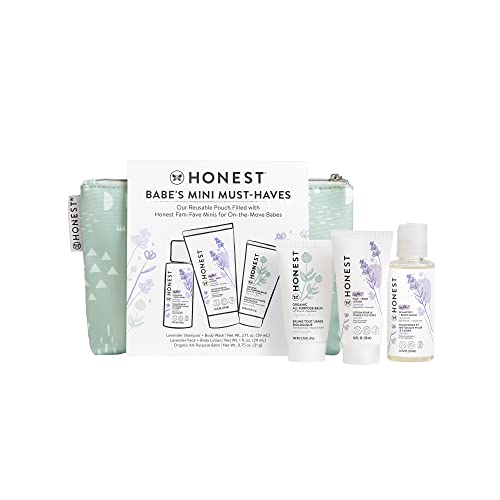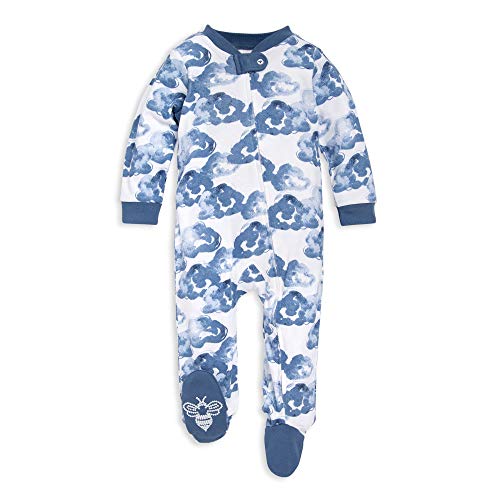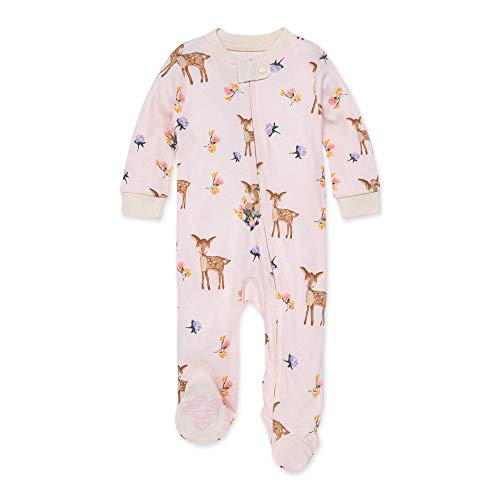
Hey there, new parent! Are you feeling overwhelmed by the endless options of baby products on the market? We totally get it. Making the best choices for your little one can be a challenging task, especially when it comes to organic baby products. That’s why we’re here to help you navigate through the sea of choices and answer the burning question on your mind: Are organic baby products worth the investment? In this blog post, we’ll dive into the world of organic baby products, discussing their benefits, potential drawbacks, and whether they truly live up to the hype. So, grab a cup of tea (or coffee, we won’t judge!) and let’s explore this topic together!
Discover the most popular and trusted organic baby products
What are Organic Baby Products?
When it comes to caring for our little ones, we naturally want to provide them with the best and safest products available. That’s where organic baby products come in. But what exactly does “organic” mean in the context of baby products? In this blog section, we’ll dive into the world of organic baby products, exploring what sets them apart from conventional products and why they are a great choice for your little one.
Understanding Organic Baby Products
Organic baby products are made from ingredients that are grown without the use of synthetic pesticides, fertilizers, or genetically modified organisms (GMOs). These products are designed to minimize exposure to potentially harmful chemicals, ensuring the well-being of your baby and the planet.
The Difference Between Organic and Conventional
So, what makes organic baby products different from their conventional counterparts? Let’s take a closer look:
Ingredients
Organic baby products are made with organic ingredients, which means they are free from artificial additives, preservatives, and synthetic chemicals. Conventional products, on the other hand, often contain ingredients that may pose risks to your baby’s health.
Manufacturing Processes
Organic baby products are manufactured using environmentally friendly processes that prioritize sustainability and minimize waste. Conventional products, on the other hand, may involve practices that are harmful to the environment, such as excessive water usage or the release of harmful byproducts.
Certifications
To ensure the authenticity and quality of organic baby products, various certifications are available. Here are some of the most recognized certifications to look out for:
- USDA Organic: This certification ensures that the product is made with at least 95% organic ingredients and meets strict standards set by the United States Department of Agriculture.
- GOTS (Global Organic Textile Standard): GOTS certification guarantees that textiles used in baby products are made with organic fibers and have been processed without harmful chemicals.
- Oeko-Tex Standard 100: This certification ensures that the product has been tested for harmful substances, making it safe for your baby’s delicate skin.
It’s important to note that not all products labeled as “natural” or “green” are necessarily organic. To ensure that a product is truly organic, look for these certifications and check the ingredient list for any potential red flags.
Choosing Organic Baby Products
When it comes to choosing organic baby products, there are several benefits to consider:
- Reduced exposure to harmful chemicals: Organic baby products minimize your baby’s exposure to potentially harmful chemicals, reducing the risk of allergies, skin irritations, and other health issues.
- Environmentally friendly: By choosing organic products, you’re supporting sustainable farming practices and reducing the environmental impact of conventional agriculture.
- High quality and safety standards: Organic baby products undergo rigorous testing and adhere to strict standards, giving you peace of mind about the safety and quality of the products you use.
Benefits of Organic Baby Products
As parents, we want nothing but the best for our little ones. From the food they eat to the clothes they wear, every decision we make has their health and well-being in mind. One area where we can make a positive impact is by choosing organic baby products. In this blog post, we will explore the benefits of using organic baby products and why they are a great choice for your little bundle of joy.
Reduced Exposure to Harmful Chemicals
One of the main advantages of organic baby products is that they are made without the use of harmful chemicals. Conventional baby products often contain synthetic materials, dyes, and fragrances that can irritate a baby’s delicate skin. By choosing organic options, you can minimize your baby’s exposure to these potentially harmful substances. Here are some specific benefits:
- Organic Clothing: Organic cotton clothing is made without the use of pesticides and synthetic fertilizers. This means that your baby’s skin will not be exposed to these potentially toxic chemicals. Organic clothing is also softer and more breathable, making it perfect for your baby’s sensitive skin.
- Organic Skincare: Organic baby skincare products are free from harsh chemicals such as parabens, phthalates, and sulfates. Instead, they are made with natural ingredients like plant extracts and essential oils. This reduces the risk of skin irritation and allergies, keeping your baby’s skin healthy and happy.
Better for the Environment
Using organic baby products is not only beneficial for your little one, but also for the environment. Conventional farming methods often rely on the use of synthetic pesticides and fertilizers, which can harm the soil, water, and wildlife. By choosing organic options, you are supporting sustainable farming practices that promote environmental conservation. Here are some specific benefits:
- Organic Food: Organic baby food is made from crops that are grown without the use of synthetic pesticides and genetically modified organisms (GMOs). By choosing organic food for your baby, you are reducing the demand for chemical-intensive farming practices and supporting more sustainable agricultural systems.
- Eco-Friendly Diapers: Organic diapers are made from renewable materials such as organic cotton and bamboo, which are biodegradable and compostable. These diapers are free from chlorine, phthalates, and other harmful chemicals found in conventional diapers. By using organic diapers, you are reducing your baby’s environmental footprint and contributing to a healthier planet.
Potential Health Benefits
Beyond reducing exposure to harmful chemicals and being better for the environment, organic baby products may also offer potential health benefits for your little one. While more research is needed in this area, some studies suggest that organic products may have certain advantages. Here are some potential health benefits:
- Reduced Allergenicity: Organic baby products are often made without common allergens such as synthetic fragrances, artificial dyes, and preservatives. This can be particularly beneficial for babies who are prone to allergies or have sensitive skin.
- Higher Nutritional Value: Organic baby food is produced without the use of genetically modified ingredients, synthetic hormones, and antibiotics. Some studies suggest that organic food may have higher levels of certain nutrients, such as antioxidants and omega-3 fatty acids, which are important for your baby’s growth and development.
Cost Considerations
As parents, we always want the best for our little ones, and choosing the right baby products is no exception. Organic baby products have gained popularity in recent years due to their perceived benefits for our babies and the environment. However, one common concern that often arises is the cost. Are organic baby products worth the higher price? In this blog post, we will delve into the cost factor of organic baby products compared to conventional ones, discuss whether the benefits outweigh the higher price, and provide tips on how to make organic choices more affordable.
The Price Tag: Organic vs Conventional
When shopping for baby products, it’s no secret that organic options tend to come with a higher price tag. This is primarily because organic products are produced using sustainable and eco-friendly methods, which can be more costly. Additionally, organic ingredients are often sourced from certified organic farms, further contributing to the higher price.
On the other hand, conventional baby products are usually mass-produced and may contain synthetic ingredients or pesticides. These products are often more affordable due to economies of scale and lower production costs.
Weighing the Benefits
While the upfront cost of organic baby products might be higher, it’s essential to consider the long-term benefits they offer. Here are a few reasons why many parents believe the benefits outweigh the higher price:
- Reduced exposure to harmful chemicals: Organic baby products are free from synthetic chemicals, pesticides, and artificial fragrances. By choosing organic, you can minimize your baby’s exposure to potentially harmful substances commonly found in conventional products.
- Gentler on sensitive skin: Babies have delicate and sensitive skin. Organic baby products are often made with natural ingredients that are less likely to cause skin irritation or allergic reactions.
- Environmental impact: Organic products are produced using sustainable farming practices that prioritize the health of the environment. By choosing organic, you are supporting eco-friendly initiatives and reducing your carbon footprint.
Making Organic Choices More Affordable
If you’re concerned about the cost of organic baby products, fret not! Here are some tips to help you make organic choices more affordable without compromising on quality:
- Prioritize key products: Focus on purchasing organic products that are in direct contact with your baby’s skin or those they ingest, such as organic baby food, diapers, lotions, and soaps. This way, you can ensure your baby’s exposure to harmful substances is minimized in critical areas.
- Buy in bulk: Consider buying organic baby products in bulk to take advantage of discounts and lower the cost per unit. This can be especially beneficial for essentials like diapers and wipes.
- Shop sales and discounts: Keep an eye out for sales, promotions, and discounts offered by organic baby product brands. Sign up for newsletters or follow their social media pages to stay updated on special offers.
- DIY alternatives: Get creative and explore do-it-yourself options for baby products whenever possible. You can make your own organic baby food, create homemade baby wipes, or even craft natural baby skincare products using simple ingredients like coconut oil or shea butter.
Making an Informed Decision
As parents, we want nothing but the best for our little ones, especially when it comes to their health and well-being. One way to ensure that we’re giving our babies the safest and most natural products is by choosing organic baby items. However, with so many options available, it can be overwhelming to know where to start. In this guide, we’ll walk you through the process of making an informed decision when it comes to choosing organic baby products.
Reading Labels: Understanding Ingredients
When browsing through different baby products, it’s essential to pay close attention to the labels. Here are some key things to look for:
- Certified Organic: Look for products labeled as “certified organic.” This means the product has met strict standards set by reputable organic certification bodies.
- Ingredients List: Read the ingredients list carefully. Avoid products that contain synthetic fragrances, parabens, phthalates, sulfates, and other potentially harmful chemicals.
- Natural Materials: Opt for products made from natural materials such as organic cotton, bamboo, or wood. Avoid synthetic fibers and plastics.
- Dye-Free: Choose products that are free from artificial dyes or colorants.
Researching Brands: Reputation and Ethics
To ensure you’re selecting organic baby products from trustworthy brands, take the time to research their reputation and ethics. Here are some steps to consider:
- Online Reviews: Read reviews from other parents to get an idea of the brand’s quality, reliability, and customer satisfaction.
- Company Values: Research the brand’s mission, values, and commitment to sustainability and ethical practices.
- Transparency: Look for brands that openly disclose their manufacturing processes and ingredient sourcing.
- Certifications: Check if the brand holds any relevant certifications, such as GOTS (Global Organic Textile Standard) for textiles or USDA Organic for food products.
Understanding Certifications: What to Look For
Certifications play a vital role in ensuring the authenticity and quality of organic baby products. Here are a few key certifications to be aware of:
- GOTS (Global Organic Textile Standard): GOTS certification guarantees that the textile product meets strict organic and social criteria, covering all stages from harvesting to labeling.
- USDA Organic: USDA Organic certification applies to baby food and skincare products. It ensures that the ingredients used are grown without synthetic pesticides, herbicides, or genetically modified organisms (GMOs).
- Ecocert: Ecocert certification ensures that products meet specific environmental and ethical standards, including the use of natural and organic ingredients.
Practical Tips for Making Informed Decisions
To help you navigate the world of organic baby products, here are some practical tips:
- Start Small: Begin by replacing the most frequently used items, such as diapers or skincare products, with organic alternatives.
- Consider Your Baby’s Needs: Every baby is different, so consider factors like allergies, sensitivities, and personal preferences when choosing organic products.
- Price vs. Quality: While organic products may come at a slightly higher price, consider the long-term benefits for your baby’s health and the environment.
- Take Advantage of Trial Packs: Many organic baby product brands offer trial packs or sample sizes, allowing you to test different options before committing to larger purchases.
- Seek Recommendations: Ask friends, family members, or healthcare professionals for recommendations on trusted organic baby product brands.
Making the Best Choice for Your Baby’s Health and the Environment
In conclusion, when it comes to the question of whether organic baby products are worth the investment, it ultimately depends on your priorities as a parent. Throughout this post, we have explored the various benefits of organic baby products, including reduced exposure to harmful chemicals, support for sustainable practices, and potential health advantages. It is evident that for parents who prioritize their baby’s health and the well-being of the environment, organic baby products can be a valuable investment.
However, it is important to acknowledge that organic products can come with a higher price tag. It is crucial to weigh the benefits against the cost and consider your own values and budget. Every family is unique, and what works for one may not work for another.
Ultimately, the decision to invest in organic baby products is a personal one. If you have the means and the desire to provide your baby with the best possible start in life, organic options can be a great choice. Remember to do your research, read labels, and make informed decisions based on what aligns with your values and what you feel is best for your baby.
Find the Best Places to Purchase Organic Baby Products
Healthy Pregnancy Summit
20+ Medical And Health Professionals Have Come Together For This Online Summit Designed To Help Families Have A Safer Pregnancy And A Healthier Baby Without Worry While Minimizing The Risk Of Complications, Miscarriage And Developmental Disorders.
Woodwork101 - Hot Woodworking Offer. 10% Cvr, $2 EPC
1000+ hours of DIY woodworking videos turns your traffic into HARD CA$H. Up to $140 per sale. Perfect fit for cold traffic and DIY, Survival, Energy, Prepper, Conservative lists! Check The Affiliate Resources Here: https://www.woodwork1on1.com/affiliates
Resell Right eBooks- 75% Commissions
With more than 200 Resell Rights eBooks to offer and with fresh new eBooks added every week, includes ready-made sales pages, ready-made websites, sales images, affiliate pages, and affiliate tools such as banners, email swipes, and text ads.
Protoflow - Convert Clicks Into Cash Now!
Tap into the Billion-Dollar Prostate Market with a TESTED & PROVEN offer. No guesswork, zero risks - just profits!
Silk Remedy - Viral Foot Peel Mask
The “disgustingly satisfying” foot peel that went viral - brought to you by the creators of multiple health & beauty grand slams. Start promoting before everyone else. Email carly@theglowdemocracy.com to get whitelisted.
Obliterate Stored Fat For People with Autoimmune and Metabolic Issues.
People who suffer from autoimmune and metabolic symptoms don't lose weight the same way others can. This program blueprint sets a framework the reader can learn and apply to their everyday lives. It also works for insulin resistance and menopause.














